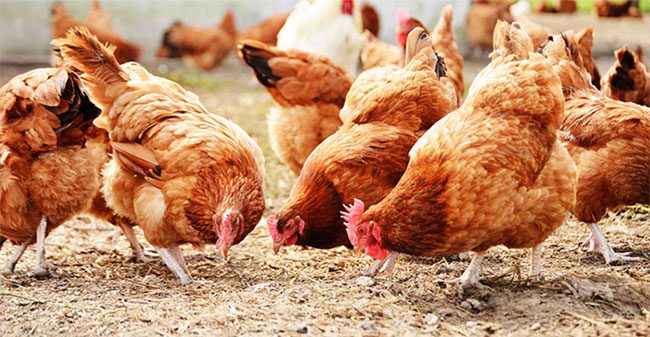On October 21, the Ministry of Health announced that through the infectious disease surveillance system, on October 17, the Central Institute for Hygiene and Epidemiology (Ministry of Health) reported a patient tested positive for H5 avian influenza, currently residing in Thanh Ba District, Phu Tho Province. This is the latest case of H5 influenza in humans in Vietnam since February 2014.
On October 20, at an online conference to enhance epidemic prevention and COVID-19 vaccination efforts, Dr. Nguyen Luong Tam, Deputy Director of the Department of Preventive Medicine (Ministry of Health), stated that according to reports from the infectious disease surveillance system, on October 17, 2022, the Central Institute for Hygiene and Epidemiology reported a positive test result for H5 influenza from a sample taken from a 5-year-old female patient (in Phu Tho).
This is the latest case of H5 influenza in humans in Vietnam since February 2014. Since 2003, the country has recorded a total of 128 cases of H5 influenza.

This is the latest case of H5 influenza in humans in Vietnam since February 2014.
Dr. Tran Nhu Duong, Deputy Director of the Central Institute for Hygiene and Epidemiology, stated that immediately after identifying the case, the Institute dispatched a mobile response team to Phu Tho to collaborate with the Department of Animal Health (Ministry of Agriculture and Rural Development) and local authorities to investigate the epidemiological situation.
The team collected 65 samples from individuals who had contact with the patient (both close and distant contacts), and test results showed that all were negative for H5 influenza. Currently, the health status of those who came into contact with the patient is completely normal.
Regarding avian influenza, according to information from the Department of Animal Health, outbreaks of avian influenza continue to be reported sporadically among poultry in many localities across the country. Additionally, the weather is currently transitioning and changing unusually, which is conducive to the development of avian influenza viruses. It is predicted that in the near future, the risk of avian influenza transmission to humans is high.
At the meeting, Deputy Minister of Health Nguyen Thi Lien Huong urged local health sectors to enhance surveillance, detect early, investigate cases of suspected human infection with avian influenza strains, and promptly and thoroughly handle outbreaks in their areas; review professional guidelines on surveillance and prevention of avian influenza in humans; and develop plans for epidemic prevention. At the same time, they should coordinate with local veterinary agencies to closely monitor the avian influenza situation to implement preventive measures against human transmission and be prepared for responsive measures. Additionally, they should increase public awareness of preventive measures against avian influenza transmission to humans in areas with sick or dead poultry and high-risk regions.
According to information from the Department of Animal Health (Ministry of Agriculture and Rural Development), outbreaks of avian influenza continue to be reported sporadically among poultry in many localities across the country. The upcoming period coincides with the Lunar New Year and festival season, which may increase the overall poultry population and the transportation and trade of poultry. Furthermore, the current weather is transitioning and changing unusually, which is conducive to the development of avian influenza viruses. Therefore, there is always a risk of avian influenza transmission to humans.
To proactively prevent avian influenza transmission to humans, on October 20, the Department of Preventive Medicine (Ministry of Health) sent Official Letter 1164/DP-DT requesting the Director of the Phu Tho Department of Health to strengthen avian influenza prevention measures in the province with several key contents as follows:
Organize investigations and thoroughly handle outbreaks; enhance surveillance to detect new outbreaks in humans; hospitals should be ready to admit, isolate, and treat according to the Ministry of Health’s regulations and promptly notify the provincial Centers for Disease Control to implement timely epidemic prevention measures.
Closely coordinate with veterinary authorities and local governments in monitoring and detecting avian influenza outbreaks in poultry, timely sharing information, and thoroughly addressing outbreaks.
Increase public awareness of preventive measures against avian influenza transmission to humans in areas with sick or dead poultry and high-risk regions.
Ensure the availability of medicines, supplies, chemicals, and support equipment for localities to implement outbreak control measures promptly.


















































